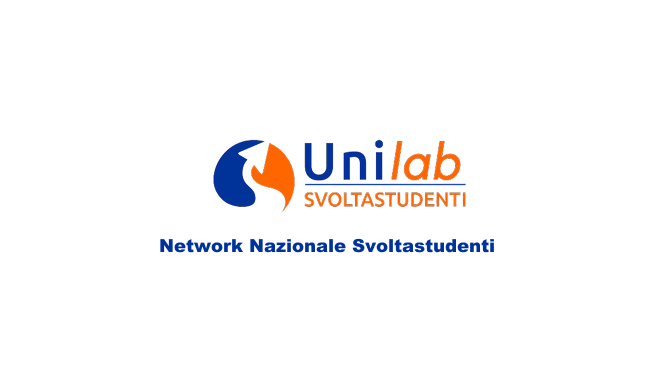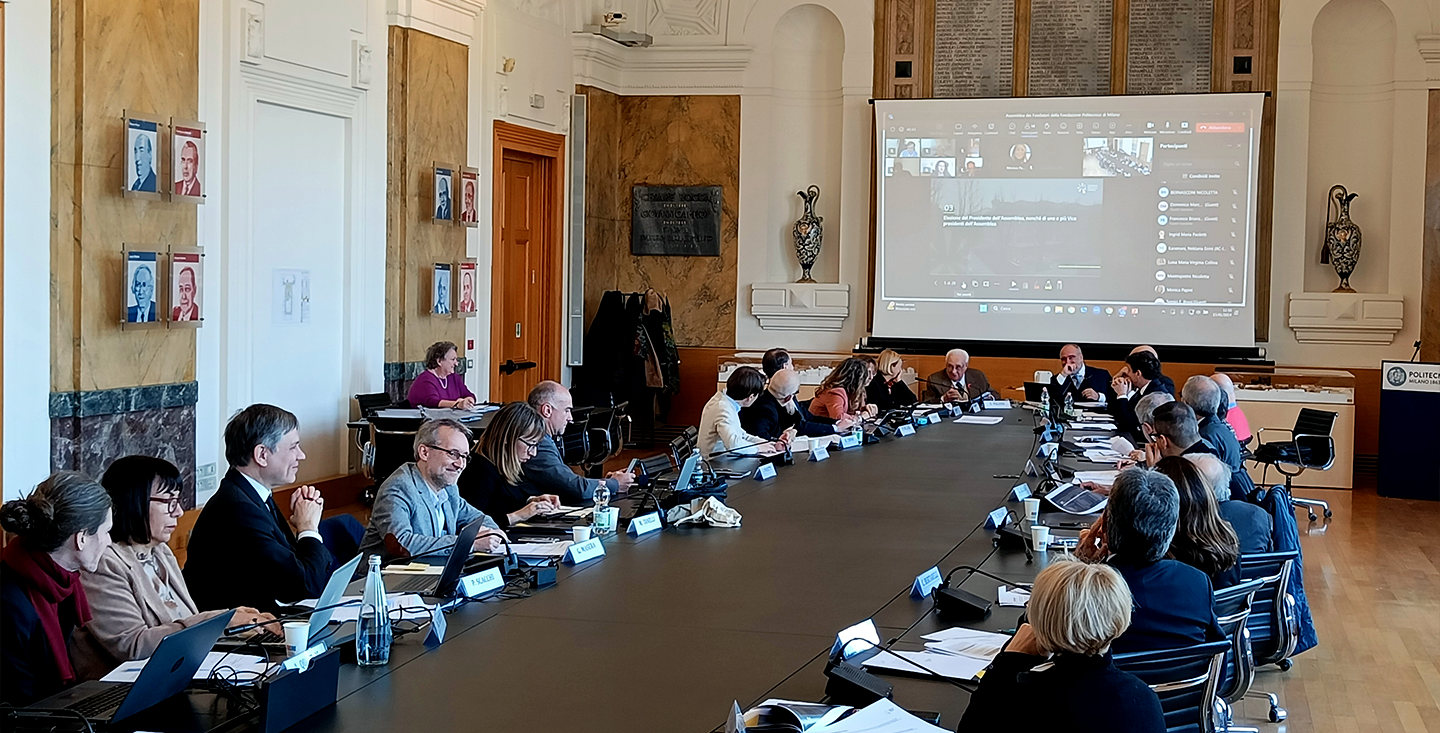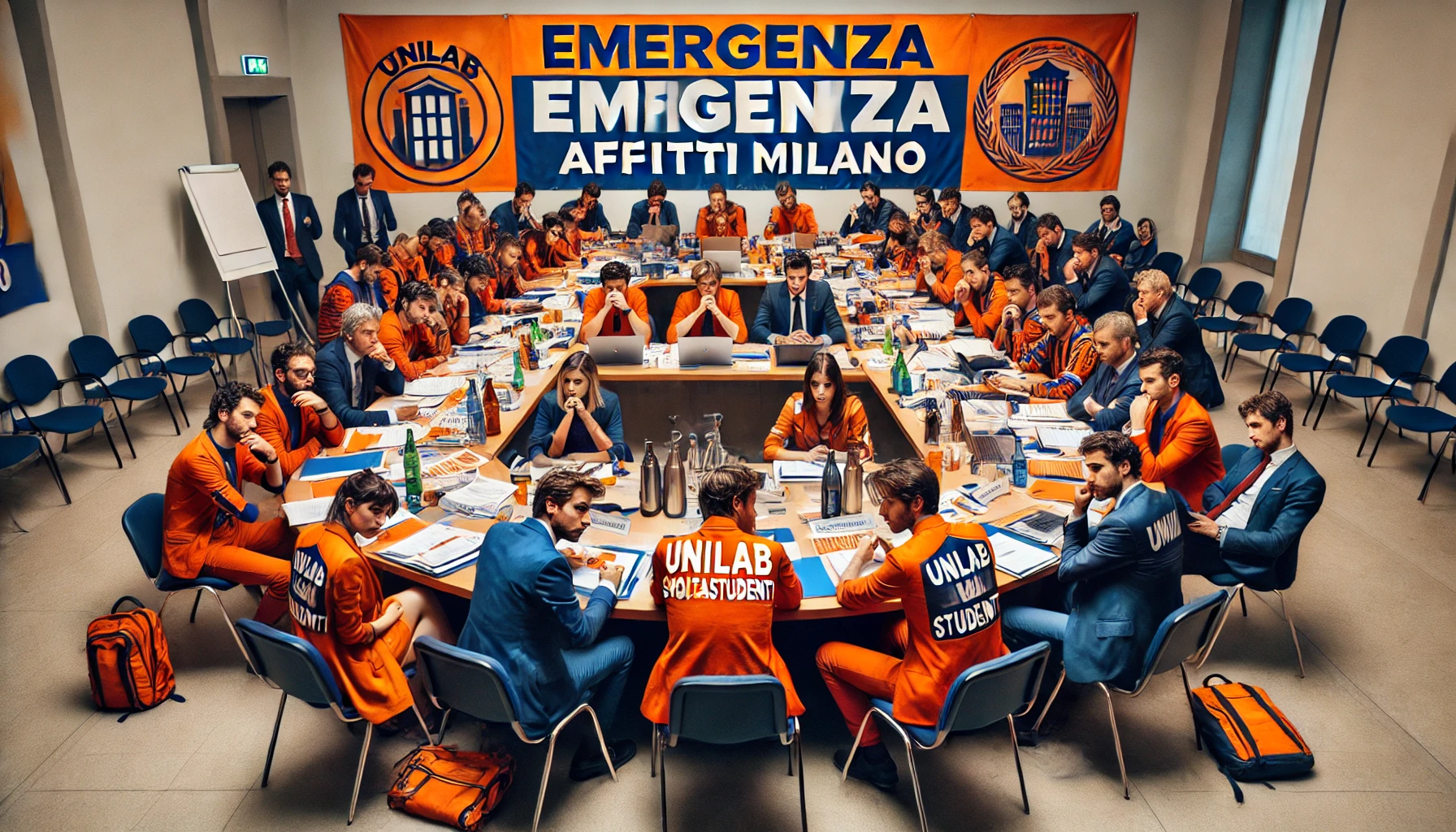Good morning everyone.
It is an honor and a pleasure for me to be able to open this inauguration ceremony of the 148th academic year of the Politecnico di Milano, with a commitment that translates today into words, to move on to actions as early as tomorrow, together with all the representatives.
I thought a lot about what to say today. I would have liked to have been able to propose a wide-ranging, relaxed and calm speech, but I cannot ignore some precise things that I think I must say.
This year we wanted to emphasize the importance of "networks" for the university. Alongside those that involve the University in its institutional character, there are many networks, not always coinciding with the first, which directly involve people and in particular students of the university. Among the many that came to mind, I wanted to choose three.
The first is represented by the university itself.
The network that binds students to the university is, unfortunately, still too stretched; I think this is true in general and it is, perhaps to a different extent, also for the Polytechnic. It is not simply a question of offering services, which also exist and of quality, although perfectible.
It should be emphasized, however, that in the reality of our university there is a singular openness and proactiveness in this regard. It is a matter of making the students of the university "fall in love", from the opportunities it offers to the structure itself, to the walls, to the places that belong to it; to make the university world not an aseptic mixture of classrooms and lessons, but a context in which to learn and grow; to indelibly link places and meetings to these years of our lives.
Surely a lot has been done, I think that the fact that a student can contribute to today's event is significant, but much can still be done, to weld a relationship that can only bring enormous advantages, which makes students an active and indispensable part in the construction of the future university.
And I believe that the best way to start is (Rector Azzone) to share with them, immediately and insistently, the project that he will want to carry out in these years. The second is the network that binds young people to the city of Milan.
I am not from Milan, but from Todi, a small town in the heart of Umbria. I moved here almost four years ago, just to enroll in Polimi. In this period of time, not without effort, I have established a very strong bond with this city, I have found my reference points and my "shelters" and that is why, although I can never feel it as "home", I will inevitably have its good at heart. I have always seen, however, in Milan a strong contradiction between the extraordinary liveliness and spirit that it shows in some situations and the underground indifference that runs through its streets every day.
It is not indifference in its common sense, nor coldness or the ostentation of formalities; it is the tangible, solid indifference that sometimes really makes us doubt our "social" soul. I am convinced, however, that there is a different and better face than Milan and that much of this face has the traits of young people, who, not yet hardened by work and, perhaps, with a few more dreams, retain a sensitivity different from that of the adult world.
They are the young people who now speak fluent English and, perhaps, Chinese or Arabic, who have learned the richness of different cultures, who are particularly attentive to social policies, who rebel against injustices, when indifference is combined with fear of the different, which they create and produce, when they realize that they have an attentive and open interlocutor.
Above all, they are also the young people who attend the Polytechnic, those who come from afar, those who live in our residences, weaving the "global network" in contact with dozens of different cultures. It is all of us: the students who learn from this university the aptitude for planning and comparison and at the same time the ethics in carrying out their tasks.
I have just said that we must make sure that students live the university: the next step, not necessarily in a chronological sense, could be to make the city learn to live the Polytechnic, opening the boundaries of our Campuses to the entire city community, making our university, as well as an excellent training center, a promoter of culture, events and occasions, not only for its students, but also for the reality in which they live.
Only through a choice of this kind do I see the possibility of making this city more aware of the enormous resource that students represent for it, with the hope that this awareness will be accompanied by a new way of addressing them.
The third network that I have identified, finally, is the one that binds students to society. By this word I mean all the realities with which we will have to confront ourselves once we leave these walls: politics, administrations, businesses.
In this particular historical moment, I think that young people feel a strong need for morality, in all fields.
Morality that means, for example, recognition and promotion of merit, work ethic, fair and courageous policies, evaluation processes and support of companies that operate "ethically" (regarding the protection of workers, safety at work, corporate social responsibility).
In a civilization, ours, which has solved, like an Oedipus complex, the break first and the generational conflict then, this last network is, probably, the most important.
We are ready to put our intelligence, our passion and our abilities into play, to escape the increasingly widespread disaffection with politics, to confront each other, to seek effective answers, the result of an alternative point of view, to assume a different, active, incisive and credible role within the society in which we have chosen to live.
To change, for the better, an Italy that we do not like, because it does not invest in young people and merit, cutting scholarships for the Right to Study, because it chooses not to finance basic research, because it cannot live serenely and positively its history and its political life, because it allows arrogance and disloyalty to impose itself on the rules.
We are ready, but we want your signal, President Marcegaglia and President Formigoni, and the worlds you represent today.
A strong signal, more than a promise, that tells us that we are not the only ones who want something different, that shows us that we have in you an ally in the construction of a more just and civilized country, in which merit goes hand in hand with equal opportunities and in which young people can serenely build their future.
We want to live in Europe, we feel like citizens of the world but, above all, we do not want to run away from Italy.
I am now at the end of my speech and the time has come for good wishes.
This year, however, in addition to the inauguration of the academic year of the Polytechnic, we celebrate the 150th anniversary of the unification of Italy. So I do not wish them well with our university, which basically does not need it too much, nor with teachers or students; and not even to you who are here right now.
If you will allow me, I wish Italy well! And I want to do it, stealing the words from Francesco De Gregori. "Long live Italy half garden and half jail, long live Italy, the whole of Italy. Long live Italy, Italy that works, Italy that despairs and Italy that falls in love, Italy half duty and half luck, long live Italy, Italy on the moon." Thank you.




